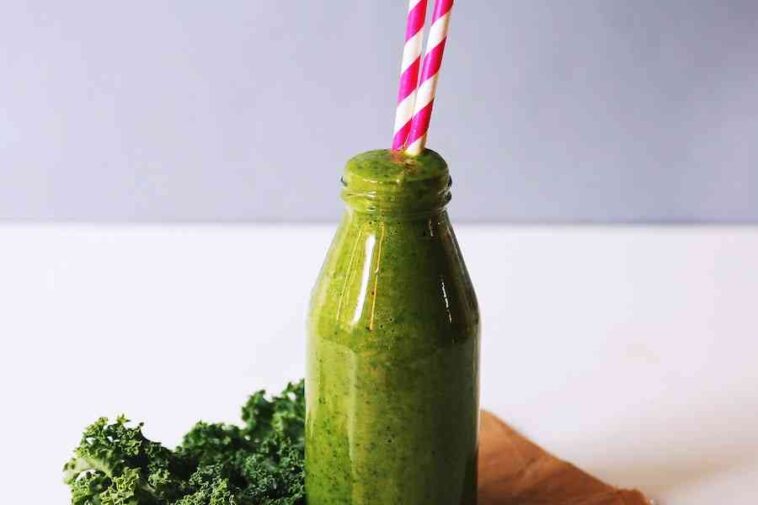In a world constantly seeking natural remedies for weight management, Aloe Vera Juice has emerged as a popular choice. This succulent plant, known for its numerous health benefits, has garnered attention for its potential role in aiding weight loss. However, as with any dietary supplement, the key question arises: How much Aloe Vera Juice should one consume daily to harness its weight loss benefits effectively? In this article, we will delve into the science behind Aloe Vera’s impact on weight management and provide comprehensive guidance on determining the right daily dosage for those seeking to shed extra pounds.
How Much Aloe Vera Juice To Drink Daily For Weight Loss?
The optimal daily dosage of Aloe Vera Juice for weight loss typically ranges from 2 to 4 ounces (60-120 mL) per day. However, it’s crucial to start with a lower amount and gradually increase it while monitoring your body’s response. Always consult with a healthcare professional before adding Aloe Vera Juice to your weight loss regimen, as individual factors can influence the appropriate dosage.

Nutritional Content Of Aloe Vera Juice
Aloe Vera Juice is renowned not only for its potential weight loss benefits but also for its rich nutritional content. This succulent plant, which has been used for centuries for its medicinal properties, contains a variety of essential nutrients that can contribute to overall well-being.
First and foremost, Aloe Vera Juice is a hydrating powerhouse, comprising approximately 99% water. This high water content helps keep the body adequately hydrated, supporting various bodily functions and promoting skin health.
Additionally, Aloe Vera Juice is a source of essential vitamins and minerals. It contains vitamins A, C, and E, which are known for their antioxidant properties. These vitamins help combat oxidative stress, boost the immune system, and promote healthy skin. The juice also provides small amounts of B vitamins, including B1 (thiamine), B2 (riboflavin), and B3 (niacin), which play crucial roles in metabolism.
Moreover, Aloe Vera Juice contains minerals such as calcium, magnesium, and potassium. These minerals are vital for maintaining proper muscle function, bone health, and regulating blood pressure.
Furthermore, Aloe Vera Juice contains a variety of bioactive compounds, including enzymes, polysaccharides, and amino acids, which are believed to contribute to its various health benefits, including potential support for weight loss. These compounds may aid in digestion, enhance nutrient absorption, and promote overall gastrointestinal health.
How To Incorporate Aloe Vera Juice Into Your Daily Routine?
Incorporating Aloe Vera Juice into your daily routine can be both enjoyable and beneficial. Here are some practical and delicious ways to make it a part of your daily regimen:
- Straight Up: The simplest way is to drink Aloe Vera Juice straight from a small glass. Start with a small amount (about 2 ounces) and gradually increase it as your body becomes accustomed to it. Be mindful of its slightly bitter taste.
- Smoothies: Add Aloe Vera Juice to your morning smoothie. Combine it with fruits like berries, bananas, and a touch of honey to mask the bitterness and enhance the flavor.
- Aloe Vera Gel Cubes: Freeze Aloe Vera Juice in ice cube trays to create Aloe Vera gel cubes. Pop one or two cubes into your water or smoothie for a refreshing and hydrating boost.
- Tea or Infusions: Mix Aloe Vera Juice with herbal teas like chamomile or ginger. This can be soothing for the digestive system and add a unique flavor to your tea.
- Salad Dressing: Create a healthy salad dressing by blending Aloe Vera Juice with olive oil, lemon juice, garlic, and your favorite herbs. Drizzle it over salads for added nutrients and flavor.
- Detox Water: Add a splash of Aloe Vera Juice to your water bottle along with some lemon slices and cucumber for a detoxifying and refreshing beverage.
- Yogurt or Smoothie Bowls: Mix Aloe Vera Juice into your yogurt or use it as a base for your smoothie bowls. It can add a subtle tangy flavor and enhance the texture.
- Aloe Vera Popsicles: Blend Aloe Vera Juice with fruits like pineapple or mango and pour the mixture into popsicle molds. Freeze for a healthy and tasty treat.
- Pre-Workout Booster: Consume Aloe Vera Juice about 30 minutes before your workout to help with hydration and energy levels.
- Afternoon Pick-Me-Up: Replace your sugary or caffeinated afternoon beverage with a small glass of Aloe Vera Juice to refresh and recharge.
Potential Risks And Side Effects
While Aloe Vera Juice offers various potential health benefits, it’s essential to be aware of potential risks and side effects, especially when consumed in excess or by individuals with certain sensitivities or health conditions. Here are some important considerations:
- Digestive Discomfort: Aloe Vera Juice can have a laxative effect, leading to digestive discomfort, including diarrhea and cramps, when consumed in large quantities. This is often associated with compounds called anthraquinones present in the outer leaf latex. To avoid this, start with a small amount and monitor your body’s response.
- Electrolyte Imbalance: Prolonged or excessive use of Aloe Vera Juice as a laxative may lead to electrolyte imbalances, particularly a reduction in potassium levels, which can affect heart and muscle function. This risk is higher when using whole-leaf preparations.
- Allergic Reactions: Some individuals may be allergic to Aloe Vera, experiencing symptoms such as skin rashes, itching, or hives. If you’re new to Aloe Vera Juice, perform a patch test on a small area of your skin before consuming it.
- Medication Interactions: Aloe Vera Juice can interact with certain medications, such as diuretics, steroids, and antiarrhythmic drugs. It may enhance the effects of these medications, leading to potential complications. Consult your healthcare provider if you’re taking any prescription medications.
- Hypoglycemia Risk: Aloe Vera Juice may lower blood sugar levels. If you have diabetes and are taking medication to control blood sugar, be cautious when using Aloe Vera Juice, as it can lead to hypoglycemia (low blood sugar). Regular monitoring is essential.
- Pregnancy and Breastfeeding: Pregnant and breastfeeding women should avoid Aloe Vera Juice or use it under strict medical supervision, as its safety in these situations is not well-established.
- Quality and Purity: Ensure that you choose a high-quality, pure Aloe Vera Juice product. Some commercially available Aloe Vera products may contain added sugars, artificial flavors, or other additives that can negate the health benefits and cause adverse effects.
- Drug Sensitivities: Individuals with a history of drug sensitivities or allergies should be cautious, as Aloe Vera Juice may potentially trigger allergic reactions in some cases.
Tips On Maximizing The Benefits Of Aloe Vera Juice For Weight Loss
Maximizing the benefits of Aloe Vera Juice for weight loss requires a balanced approach that includes proper dosage, healthy lifestyle choices, and consistency. Here are some tips to help you get the most out of Aloe Vera Juice as a part of your weight loss regimen:
- Consult a Healthcare Professional: Before starting any new dietary supplement or weight loss plan, consult with a healthcare provider or registered dietitian. They can provide personalized guidance based on your individual health status and needs.
- Choose Pure Aloe Vera Juice: Opt for high-quality, pure Aloe Vera Juice without added sugars, preservatives, or artificial additives. Read labels carefully and choose reputable brands.
- Follow Recommended Dosages: Stick to the recommended daily dosage of Aloe Vera Juice, typically ranging from 2 to 4 ounces (60-120 mL) per day. Starting with a smaller amount and gradually increasing it is advisable.
- Stay Hydrated: Aloe Vera Juice is hydrating, but it’s essential to maintain overall hydration by drinking adequate water throughout the day.
- Combine with a Balanced Diet: Aloe Vera Juice is not a miracle solution; it works best when incorporated into a balanced diet. Focus on whole, nutrient-dense foods, including plenty of fruits, vegetables, lean proteins, and whole grains.
- Regular Exercise: Complement your Aloe Vera Juice consumption with regular physical activity. Exercise plays a crucial role in weight loss and overall health.
- Monitor Portion Sizes: Pay attention to portion sizes and avoid overeating. Aloe Vera Juice can help with digestion, but it’s not a replacement for mindful eating.
- Track Progress: Keep a food and activity journal to monitor your progress and identify areas for improvement in your weight loss journey.
- Include Fiber-Rich Foods: Foods high in fiber can help with satiety and weight management. Incorporate whole grains, legumes, and fiber-rich vegetables into your meals.
- Manage Stress: High-stress levels can contribute to weight gain. Practice stress-reduction techniques such as meditation, yoga, or deep breathing exercises to support your weight loss efforts.
- Get Adequate Sleep: Lack of sleep can disrupt hormones that regulate appetite and metabolism. Aim for 7-9 hours of quality sleep each night.
- Be Patient and Consistent: Weight loss takes time, and results may vary from person to person. Be patient and stay consistent with your Aloe Vera Juice consumption and healthy habits.
- Regular Check-Ins: Periodically reassess your weight loss goals and consult with your healthcare provider or dietitian to make necessary adjustments.
- Safety First: If you experience any adverse effects or discomfort while using Aloe Vera Juice, discontinue use and consult a healthcare professional.
Conclusion
In conclusion, Aloe Vera Juice can be a valuable addition to your weight loss journey when used wisely and in moderation. Its potential benefits for digestion, hydration, and overall health make it a compelling choice. However, it’s essential to follow recommended dosages, prioritize a balanced diet, and maintain a healthy lifestyle. Consultation with a healthcare professional is crucial to ensure it aligns with your individual health needs. By approaching Aloe Vera Juice with caution and combining it with mindful choices, you can harness its potential for weight management while promoting your overall well-being.
FAQ’s
Can I Drink Aloe Vera Juice Every Day For Weight Loss?
You can drink Aloe Vera Juice daily for weight loss, but it’s important to follow recommended dosages and consult with a healthcare professional for personalized guidance.
Is Aloe Vera Juice Safe During Pregnancy?
Aloe Vera Juice is not recommended during pregnancy without medical supervision, as its safety in this context is uncertain.
Can Aloe Vera Juice Help Reduce Belly Fat Specifically?
Aloe Vera Juice may aid in weight loss by supporting digestion, but it doesn’t target fat loss in specific areas. Weight loss occurs gradually throughout the body.
What Are The Signs Of Aloe Vera Juice Overdose?
Overconsumption of Aloe Vera Juice may lead to digestive discomfort, including diarrhea and cramps, electrolyte imbalances, and potential health risks.
Is It Better To Drink Aloe Vera Juice Before Or After Meals?
It’s often recommended to consume Aloe Vera Juice before meals to potentially aid digestion and promote a feeling of fullness, but it can also be consumed at other times





